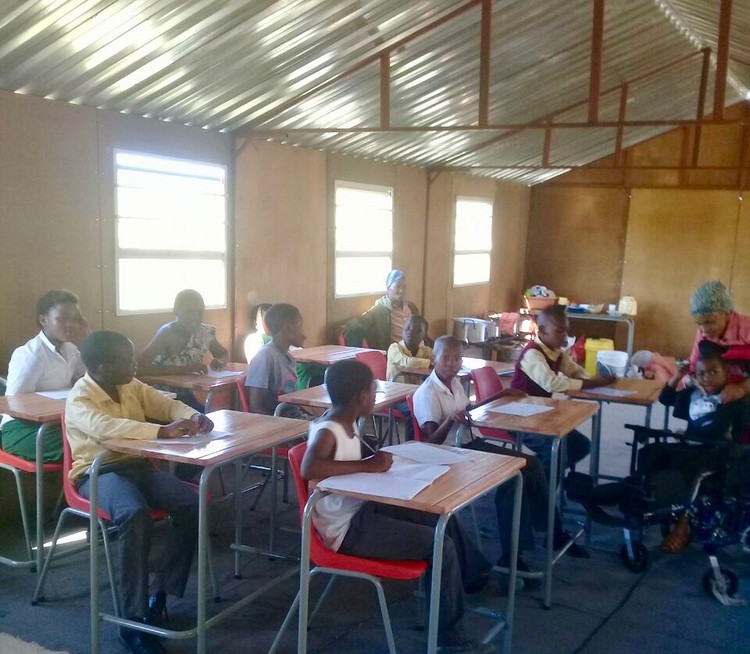Villagers start special needs day-care centre
Parents in rural Great Kei struggled to find suitable schools for their children with disability
Parents in Great Kei Soto village, north of East London, who were unable to find suitable schools for their children with special needs, have started their own day-care centre. Sinokuhle Disability Day Care Centre has 25 learners aged between three and 18 and it needs more space.
The centre is in an old shack. It leaks when it rains and is cold. But parents say they are happy their children are not sitting at home doing nothing.
Schools that can accommodate children with special needs are located too far away from the village. Some are too expensive. In some cases, parents took their children out of schools because they felt the schools were negligent.
Most parents in Soto are not working. They rely on their children’s monthly R1,690 disability grant. Parents pay between R300 and R400 per month for the centre.
Sinokuhle now also has children from surrounding areas. Nonzame Mali from Mooiplaas, 15km away, said she sends her son to the centre because she could not find a school for him. She is unemployed and has three children. Her son is still on a waiting list with the Department of Education.
Five parents work as volunteers and Noluthando Sohoku is the principal. The nearest suitable school she could find which had space to take her 10-year-old son was in Alice, 160km away. It costed her R400 a month and she was required to take toiletries every month for her son. To get there involved several taxis – to East London, then to King William’s Town, and another to Alice.
Lulama Ngxawe, one of the parent volunteers, said she struggled for years to find a school for her 14-year-old son. “When my son was doing grade R, his teacher noticed that he was a slow learner. Another challenge was that he was struggling to walk. He uses crutches. The teacher advised me to find a special school for him.”
“After years of being on a waiting list they [the district department of education] sent me to a school in Alice. Unfortunately I had to take him out of that school after I found him very sick and the school did not even inform me … I decided to take my son home so I can look after him,” said Ngxawe.
Eastern Cape Department of Education spokesperson Malibongwe Mtima said, “You find that in one rural area there are only three children living with disability, and in different categories – one is blind, maybe others are slow when it comes to learning – and that can be a challenge for the department to build a school for three children. That is why we have to find them schools in other areas.”
Mtima said currently the department has 46 schools for children with special needs and most schools are in Port Elizabeth and East London.
“There are children who are on a waiting list and we are doing whatever we can to make sure that they all find schools. Some are still being assessed by social workers,” he said.
Spokesperson at the Department of Social Development Gcobani Maswana said they were not aware of Sinokuhle Disability Day Care Centre and officials would pay a visit.
Support independent journalism
Donate using Payfast

Letters
Dear Editor
This is really heartbreaking to see children with special needs denied the basic right to education. Even though the Department of Education claims that more schools are in Port Elizabeth and East London. Port Elizabeth children have been on the waiting list for more than three years, some as long as 10 years and have never been to school.
I feel that learners with special needs should be allowed to be in mainstream school whilst awaiting placement as part of inclusive education documented on White Paper 6. I feel the response from the Department of Education it is not enough, to say these children have different disabilities so it’s difficult to attend to them.
They should provide solutions or focus on full service package schools with remedial classes to cater for children with special needs. I salute those parents who took initiative. The DOE must support them.
© 2018 GroundUp.
This article is licensed under a Creative Commons Attribution-NoDerivatives 4.0 International License.
You may republish this article, so long as you credit the authors and GroundUp, and do not change the text. Please include a link back to the original article.

